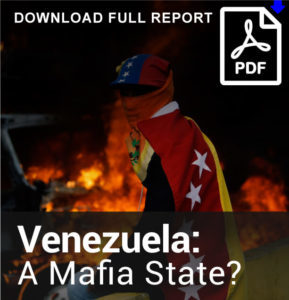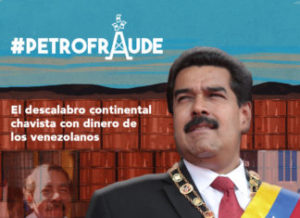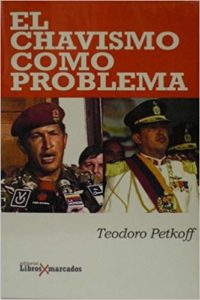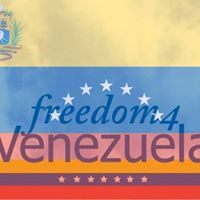Venezuela: Why is this moment different?
Democracy Digest, February 22, 2019
Venezuelan soldiers opened fire on a group of civilians attempting to keep open a segment of the southern border with Brazil for deliveries of humanitarian aid, leading to multiple injuries and the first fatality of a massive opposition operation meant to deliver international relief to this devastated South American country, according to eyewitnesses and community leaders, the Washington Post’s Anthony Faiola reports.
Venezuela has seen major protests before. Why is this moment different? The LA Times asks. The humanitarian crisis and Nicolas Maduro’s reelection last May, widely denounced as fraudulent, have helped mobilize international opposition, said David Smilde, a Venezuela expert at Tulane University.
“That claim rang hollow internationally,” he said. “Of course, the U.S. has always supported the opposition, but there was not the widespread international support in Europe and the region supporting the opposition movement.”
A shift in strategy towards institutional or constitutional politics is a key element, analyst Javier Corrales tells Freedom House.
The recent protests involve a broader segment of the population, including poor neighborhoods that traditionally supported Chavez and Maduro’s socialist policies and benefited from subsidized housing and food, said Manuel Felipe Sierra, a journalist and political analyst. People perceive Guaido not as a representative of a political party but rather a leader representing a response to the humanitarian crisis.
“The social and economic crisis is so great that what you see on the street is not only from the political opposition,” he said.
 A former intelligence chief in Venezuela who is one of the government’s most prominent figures turned against President Nicolás Maduro on Thursday, calling him a dictator with a corrupt inner circle that has engaged in drug trafficking and courted the militant group Hezbollah, the New York Times reports:
A former intelligence chief in Venezuela who is one of the government’s most prominent figures turned against President Nicolás Maduro on Thursday, calling him a dictator with a corrupt inner circle that has engaged in drug trafficking and courted the militant group Hezbollah, the New York Times reports:
In interviews with the Times, the former intelligence chief, Hugo Carvajal, 58, who is a congressman in the governing Socialist Party, urged the military to break with the president ahead of a showdown with the opposition on Saturday over Mr. Maduro’s blockade of aid shipments on the country’s borders.
“It has been more than enough,” Mr. Carvajal said in a statement, which was also released in a video online on Thursday and addressed to Mr. Maduro. “You have killed hundreds of young people in the streets for trying to claim the rights you stole. This without even counting the dead for lack of medicines and security.”
 There have been more than 48,900 anti-government protests since 2013, mostly consisting of large groups of neighbors, public workers and university students, according to the Venezuelan Observatory of Social Conflict. The human rights group reports that protests in 2018 surpassed the two previous largest waves during 2014 and 2017, the LA Times adds.
There have been more than 48,900 anti-government protests since 2013, mostly consisting of large groups of neighbors, public workers and university students, according to the Venezuelan Observatory of Social Conflict. The human rights group reports that protests in 2018 surpassed the two previous largest waves during 2014 and 2017, the LA Times adds.
Prospects of transition hinge heavily on shifting the military’s allegiance to Maduro, observers suggest.
“You can inoculate a few top level military commanders, but not the rank and file and not the PdVSVA workers,” says one analyst. “Repression and targeted rental and corruption income is a not a viable strategy for Maduro to remain in office.”
One leading analyst is “a little bit skeptical” that U.S. rhetoric will prompt the military to “flip and support Guaidó.” Nevertheless, “I think president Maduro does have his days numbered,” said Michael Shifter, president of the Inter-American Dialogue.
 “The opposition is more united than ever, the pressure is very intense, both within this hemisphere and the major European countries, and so there needs to be a negotiation of some sort to give some protections or some guarantees to the armed forces who are guilty of human rights violations and other criminal activities,” he told the BBC. “That is all going to be complicated and it will take a lot of time as we have seen in other transitions.”
“The opposition is more united than ever, the pressure is very intense, both within this hemisphere and the major European countries, and so there needs to be a negotiation of some sort to give some protections or some guarantees to the armed forces who are guilty of human rights violations and other criminal activities,” he told the BBC. “That is all going to be complicated and it will take a lot of time as we have seen in other transitions.”
A Venezuela free of the influences of the Russian autocracy and the Cuban dictatorship is an objective that the world’s democracies should support, arguesMoisés Naím, a distinguished fellow at the Carnegie Endowment for International Peace.
Cuba is going to dig in to protect Maduro in the weeks ahead, but not the Russians and surely not the Chinese, says Vanessa Neumann, who founded the political risk firm Asymmetrica.
“He is a Cuban puppet, educated and raised in part in Cuba,” she says, adding that by Venezuelan law, Maduro should not have taken over after Chavez’s death before finishing his term. The National Assembly leader at the time was next in line, not him.
“Chavez anointed him from Havana, with Cuban recommendations is my guess,” she says. “They are a parasitic state. They milked the USSR. They sponsored the FARC in Colombia. They milked Venezuela. Watch out, Mexico, because I think you’re next.”
Venezuela is the perfect target for Russian intervention. With geopolitical influence and financial investments at stake, Putin has his eyes on Washington’s backyard. But the mounting chaos in Caracas could derail Russia’s renewed global ambitions, adds Naím, a former National Endowment for Democracy board member.
 Our research, reflected in two recently published Wilson Center reports, examines differences in China-Venezuelan and Russian-Venezuelan economic relations. For China, oil ties mean Beijing has to be pragmatic about nonintervention, but Russia has geo-political aspirations, say analysts Stephen B. Kaplan and Michael Penfold.
Our research, reflected in two recently published Wilson Center reports, examines differences in China-Venezuelan and Russian-Venezuelan economic relations. For China, oil ties mean Beijing has to be pragmatic about nonintervention, but Russia has geo-political aspirations, say analysts Stephen B. Kaplan and Michael Penfold.
Previously, the cornerstone of the Russia-Venezuelan relationship had been military ties, with Venezuela buying more than $4 billion in Russian arms and military equipment. ….But Moscow appears to be learning from China’s Venezuelan hedge by diversifying its strategic hand beyond the geopolitical card, they write for the Washington Post’s Monkey Cage blog:
Facing mounting financial arrears, vulnerable supply chains, U.S. court battles over Citgo shares used as loan collateral, and U.S. sanctions on the Rosneft CEO, there are limits to how far Rosneft can extend its financial exposure in Venezuela. ….The guiding principles of Russia’s involvement in the oil and gas sectors are also mostly political rather than commercial. In a recent Wilson Center report, analyst Vladimir Rouvinski suggests that Russian political elites “sincerely believe there is an opportunity to improve the situation sometime in the future with Chavistas still in control of Venezuela.”
The EU has taken constructive steps to address the crisis in Venezuela, but the lack of a common European position could threaten progress towards a peaceful transition of power, says European Council on Foreign Relations analyst Pawel Zerka. Europe should do better on Venezuela, he states.
 Opposition demographics are another factor
Opposition demographics are another factor
Nenhum comentário:
Postar um comentário